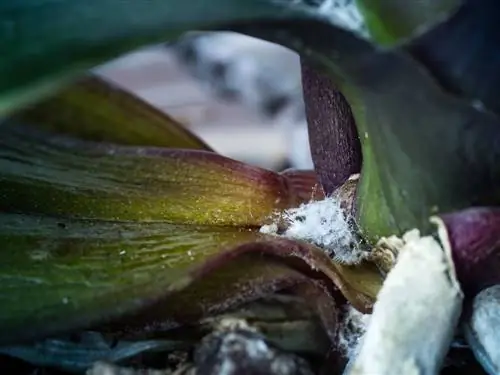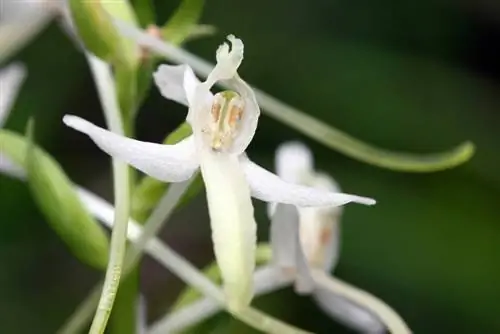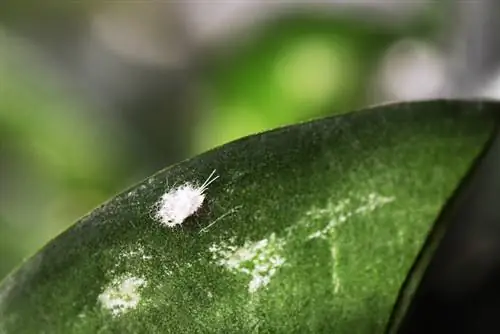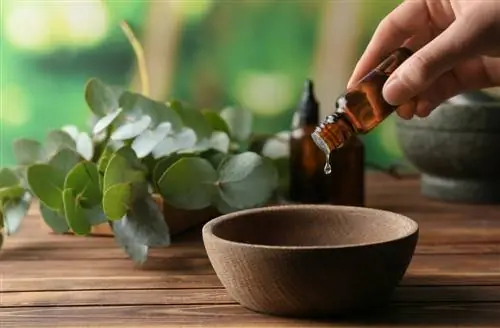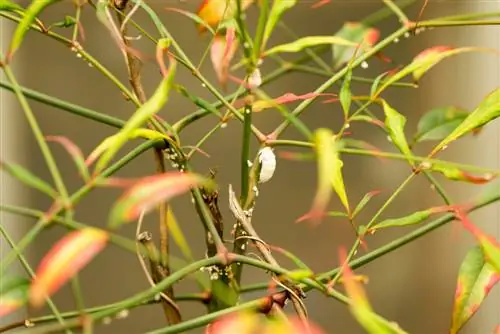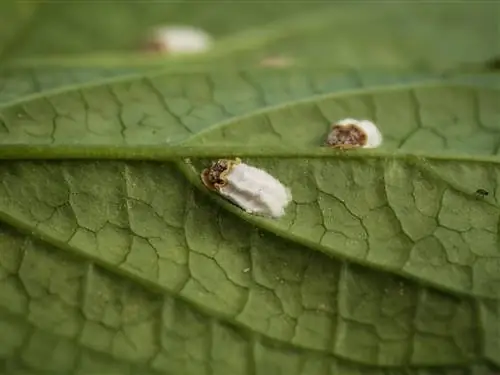- Author admin leonars@hobbygardeners.com.
- Public 2023-12-16 16:46.
- Last modified 2025-01-23 11:21.
Lice on houseplants is probably something everyone who likes green things in their home is familiar with. A “cheap” plant may be thrown away without complaint, but that is not necessarily necessary. A valuable orchid is definitely too good for that.
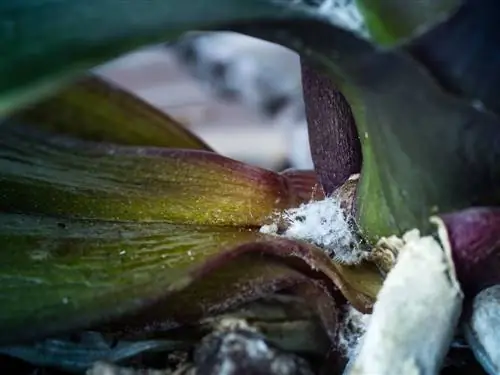
How do I prevent the spread of mealybugs from orchids to other plants?
To prevent mealybugs from being transmitted from orchids to other plants, the infected orchid should be isolated immediately. Biological control methods such as ladybugs or home remedies such as a strong jet of water and dish soap solution can help to contain the infestation.
How do I know if my orchid has lice?
Mealybugs, also known as mealybugs, can be recognized by a greasy white coating on the plant. It is usually located on the underside of the leaf, often in the leaf axils. The subspecies of root lice is difficult to recognize because they live in the soil. When repotted they leave a greasy white streak in the flower pot.
How do I prevent transmission to other plants?
Only distance can prevent mealybugs from spreading to neighboring plants. For this reason, you should isolate your infected orchid as quickly as possible. The place you choose should be bright and not too warm. Dry, warm heating air particularly attracts mealybugs. Unfortunately, the orchid is also quite susceptible to lice infestation.
What can I do against mealybugs?
You can do a lot against mealybugs, there are some proven home remedies and also predators as a biological “weapon”. Ladybugs, lacewings and parasitic wasps eat the lice from your orchid. If there are no more lice, then the beneficial insects also disappear because they can no longer find food. You can easily order these useful animals online.
As an alternative to biological control, home remedies can also be used. The simplest method is to spray the affected plant with a sharp jet of water. However, care must be taken with the orchid so that the sensitive and delicate plant is not damaged. Alcohol, lemon balm spirit or a dish soap solution are also very suitable for combating mealybugs, which also often attack the Ficus benjamini.
The most important things in brief:
- isolate infected orchids immediately
- can be easily combated with home remedies (sharp jet of water, dish soap solution, alcohol, lemon balm spirit)
- possibly use predators (ladybirds, parasitic wasps, lacewings)
- Cut off and dispose of severely affected plant parts
- prevent new infestation
Tip
The sooner you react to mealybugs on your orchid, the greater the chance of saving the plant without harsh chemicals.

